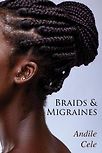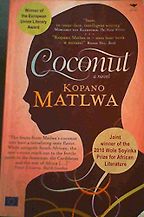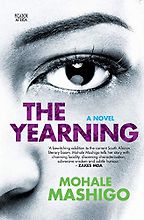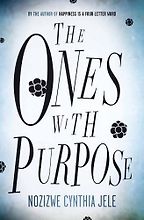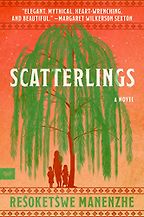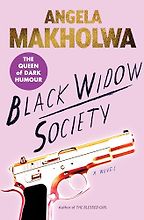For people who don’t know South Africa and its literature, can you tell us a bit about what’s out there?
Given our history as South Africa, what I have noticed is that whether it’s fiction or non-fiction, what we are writing about is intergenerational trauma. That’s not explicitly stated, but that’s what we are grappling with. We moved to democracy in 1994, and it’s all the questions around what has happened since then. Are we healed as a society? How is the ruling government doing?
There is also the integration of cultures and people, because these are just vast. We have 11 official languages—and that’s not even counting all the languages that don’t didn’t make it as ‘official’ and are part of a group of other languages, for example. In fiction, in different ways, there are questions around the rainbow nation: ‘Are we a rainbow nation? Is that really feasible, or was it just for publicity?’
There are also novels around violence against women, and how that is rooted in our past. We have a violent history, and South African society hasn’t really healed. You see that in the townships. It comes out in our music. And you see it in our fiction, in our writing.
So that is what I’ve picked up.
Does that mean a lot of the reading is painful?
Yes, it is. I do wonder if it’s the type of books that I pick out as well, because there are novels that I haven’t had a chance to read that seem fun. I hear people talk about an author called Dudu Busani. From what I’ve read in reviews, she’s written brilliant fiction around a girl who falls in love with a taxi driver. His family run a taxi business and are involved in a heist, so have a lot of money. You do find books like that, which also tell the South African story.
Another book that I wanted to mention is a poetry collection that I feel is very, very powerful. It’s called Collective Amnesia by Koleka Putuma. She has a poem in there where she talks about how our story is not just the trauma story: We have happy stories, too.
But I think because the trauma was so severe, it just comes out—even when the story is supposed to be happy. It’s even in the telenovelas that we watch. My mom is very big on telenovelas, so when I’m home, I find myself watching them. They’re fun, but there’s always that thing that comes out that’s part of us.
Let’s go through the books you’ve chosen. So first on the list is Coconut (2007) by Kopano Matlwa, which won the African Prize for Literature. For people who haven’t read it, can you tell us what it’s about and why you chose it?
I started reading late. I grew up on a farm in KwaZulu-Natal, and I never had access to a library. Then, when I moved to Pretoria for my studies, I had access to libraries and started reading a lot of Pan-African writing. I read Nervous Conditions (1988) for the first time while I was there, as well as Purple Hibiscus (2003). Then, in 2007, when I was in my second or third year, Coconut by Kopano Matlwa came out. It spoke to the world of before and the world of now: of apartheid and post-apartheid, of the transition and being in the middle.
The book is in two parts. You have the story of Ofilwe, who grows up in a middle-class family and goes to elite schools. She is questioning her identity: the fact that she doesn’t really understand her own African languages, the world around being in a Model C school. On the other side, you have Fix, who is growing up in a township. I relate to her a bit more. Her problem is that she has internalized racism.
It all comes from the psychology of being in between, as a country. What exactly am I? In apartheid times, we were told that black was no good. And because of internalized racism, there’s also colorism. In the book, there is a scene when Ofilwe is at a party, and they’re playing a game (I think it’s spin the bottle). And one of the children says, ‘I cannot kiss her because she’s too dark.’
The book is powerful because it’s very simple, but there are so many things going on. The way you sound in society: how does your English sound? I was in the same boat when I came to Pretoria. I had come from a farm, and my mom is a domestic worker. I don’t really come from a privileged background. And then you read a book that reflects how other people see you.
Coconut really packs a punch. Ofilwe is white on the inside and black on the outside. She’s in a world that is white, and she doesn’t know where she belongs. Fix is a black girl who wants to be in a more white environment, and therefore, she just hates her society. It’s just too ghetto for her.
These two people are both in South Africa. It’s the same South Africa, but they’re experiencing it differently.
Let’s go on to The Yearning (2016) by Mohale Mashigo. Tell me what this book is about and why you like it.
The Yearning is still very fresh in my mind because I’m analyzing it for a chapter in my dissertation. It’s a very tough read, but the author tries to use humor to get you through the story, because it includes sexual violence of a child, and she is that child.
It tells the story of a girl named Marubini and her journey towards psychological recovery. What’s so interesting is that she does not remember what happened to her as a child. She’s gone through school, through varsity, and she’s a working person now. She’s quite senior, so she’s been working for a while. Then, one day, she hears a song playing in her head. The song sounds familiar to her, but she cannot place it. It’s the small person in her remembering: this was the song being sung by other children outside when she was abducted into a house. It’s repressed memories coming back to her.
It’s really a story about healing, and it’s interesting because she introduces traditional practices for healing in Southern Africa. Her father was a sangoma, and that also becomes part of her healing journey. I read that as metaphoric, the idea that you cannot be a healer if you yourself have not healed. So if she is being called to be a sangoma, then there are some things in her life that she needs to reckon with. So these memories are coming back because she’s got an ancestral calling, and she cannot ascend or be enlightened to another version of herself until she’s healed.
So The Yearning, really, is about her yearning to be healed and find a place in the world and a purpose. As I said, there is humor in there. It’s not really political, but there are political incidents because, as I said earlier, these things just make their way into the narrative.
Where is it set?
When she’s young, she’s in Soweto, which is a township in Gauteng province. When she’s older, she’s in Cape Town. The song comes to her when she’s in Cape Town, and the full story of the trauma is revealed to her when she goes back to her hometown in Soweto. That’s when it comes out, as well as the fact that she’s got this calling.
It’s really an interesting book. I think it’s my number one. I don’t know if it’s because it’s fresh in my mind, but it’s really good.
Let’s turn to The Ones with Purpose (2018). What’s this one about?
This one is really brilliant. It’s by Nozizwe Jele, a South African writer from KwaZulu-Natal. It’s about grief and how these things always just find their way in. It’s about a middle-class family grieving a sister who has died from breast cancer.
The book also touches on this very interesting topic that we’re dealing with now…Well, I don’t know if we’re dealing with it, but it’s called ‘black tax’. Have you heard of it? So post-apartheid, I’m the first person to go to university in my family. Because of that, I then need to take care of people at home and help them come up as well.
So it touches on that. I wouldn’t say it’s new—black tax probably was there in the past, but it was called something else; you were celebrated for giving back. But now people are questioning it. Is there a way to get out of this? So that’s making it into fiction now.
Next up, we’ve got Scatterlings (2020) by Rešoketšwe Manenzhe. What can you tell me about this book?
Rešoketšwe Manenzhe is Pedi, I’m Zulu. She is what we consider a ‘born free.’ (I’m probably also a born free: I was born in 1986. I don’t remember what was happening in 1994, but I do remember the songs.) Like Koleka Putuma, she is a young writer who is able to take these stories from before, the pain and joy, and put them into her work.
Scatterlings really should be up there. The main topic is the Immorality Act, which was put into effect by the apartheid government in 1927. It meant that if you were black and married to a white person, or if you were black and in a relationship with a white person, it was now a crime and you would be arrested. If you were a man, I think you would spend five years in prison; for a woman, it was four years.
I like the way she’s told the story. It falls under historical fiction, and I don’t think I have any other historical novels on this list. Another author who has written a fictional work that touches on the Immorality Act and also did it brilliantly was Zakes Mda. For me, for a young woman to write a story like this of such importance is really, truly amazing.
So it’s set in South Africa during apartheid, when the Immorality Act was put in place, and it affects this family. It’s about a white man who’s called Abraham—quite a biblical name—his wife, and their two daughters. The wife, because of the trauma of the Immorality Act, burns herself. She dies by fire.
One of the daughters survives. Her name is Dido. It’s just her and her dad, and it’s about their journey of navigating this Immorality Act. As a white person, Abraham comes to experience what it means to be in a black person’s shoes through his family and the falling apart of his family.
It’s about how some of South Africa’s laws, going back to the Natives’ Land Act, tore families apart. This isn’t to say that the families were intact; obviously, they had their own problems. There was also the Group Areas Act, when you were moved from your home because your suburb was now said to be a white area. The book speaks to that, and the effects of that, and the falling apart of families because of those decisions.
It sounds like a tough read.
Yes, it’s heavy. But it is very readable.
For your last book, you’ve chosen a psychological thriller: Black Widow Society (2013) by Angel Makholwa.
I really respect Angela. I once listened to an interview with her, and she said she wrote Black Widow Society as entertainment, as crime fiction, and she never intended the book to be advocacy work. But for me, that’s what it is.
The ‘Black Widow Society’ is a group of women who are assassins. To join, you must want to get rid of your husband. The husbands are usually people who are problematic and violent. It’s a crime novel, but as with Nervous Conditions, if I look at it metaphorically, it’s about getting rid of patriarchy and bringing forth the conversations around gender-based violence. Violence on violence is not the answer, obviously, but what I take from Angela’s narrative—even though she says it’s not that at all for her—is that we need to have these conversations. Especially in South Africa, where the gender-based violence is just insane. In fact, I used to work for an NGO, and they were very specific that we shouldn’t even call it gender-based violence but violence against women: VAW.
It speaks to our violent history and how we haven’t really healed from it. I’m not making excuses, but the men in this country are really, really violent—including my dad, who was violent with my mom. You see it in young people. I went to a township school, and the boys were violent to their girlfriends. I know it’s not a unique issue and it’s not uniquely South African, but it’s very, very hectic in South Africa. That’s why I thought this book should be on this list. There are other books that speak to the violence issue, but I don’t think that they are as well written as Angela’s.
On the cover, she is described as ‘the queen of dark humor.’ I suppose you need the humor, given the subject matter—otherwise you might get too depressed.
Definitely.
Finally, tell me about your own novel, Braids & Migraines. What’s it about, and how did you come to write it?
I first started writing it in 2016. It was always about an older brother and a sister, navigating the education system. I submitted it for a prize in 2016. It wasn’t ready at the time, but I was paired with a mentor, and I worked with her. Then I moved to Cape Town and worked at a university in communications. It’s not that I forgot about the book, but I parked it.
While working, I was also studying creative writing. Then I left my job at the university and joined an NGO. I had a really difficult time there: I experienced bullying, and I really needed some form of therapy. That’s when I remembered the book I had been working on. I was excited to get back to Braids & Migraines—it helped me process what happened. So it’s probably part scriptotherapy for me as the writer.
But it’s also fiction. It tells the story of a girl navigating the education system and her older brother, who takes care of her. In a way, it’s like black tax for him, because he is already working. The sister comes from a township school but gets a scholarship to a very elite school. She’s a confident girl when she’s in the township. She has challenges—she’s neurodiverse—but she’s also very brilliant.
So she moves to the city to live with her brother and go to this very nice high school. That’s when she experiences some form of culture shock. She’s negotiating with identity and who she is in the world. But she also finds joy in doing her hair and finding the type of style that she likes. It’s her journey of becoming and being in the world. As much as she’s faced with difficulties, she finds herself in all of that.
When she’s in matric, her final year of high school, she gets into trouble. It’s really not her fault, but she’s expelled and has some kind of mental breakdown. That’s when you really see her rise up, and she decides to go back to the township to finish school there.
I don’t know how other people will read it. They will find different metaphors in it, like I find in other books. But it’s really a story of Nomandla becoming and being and finding her power in braids, and deciding the kind of braids that she likes. Because the first time she does braids at this elite school, she’s not allowed to have beads, for example.
Why did you want the novel to be about education?
I think because of what education has done for me. Education has done a lot for me. Particularly in South Africa, I don’t know where I’d be if I had not pushed through.
When I did my grade one, it was in a farm school, overlooking a graveyard. It was a very sad-looking place with gum trees. Even now, I don’t really like gum trees, because I associate them with the graveyard and that school. I failed my grade one, and the irony is that I failed it because I did not want to write! My mom says I would literally throw myself on the floor if they gave me a pen. My teacher could not even help me. She had to fail me, and I had to repeat the grade. I am grateful for their patience. I repeated the grade, and the second time I did it. I was very happy to be there.
I’ve enjoyed my education journey ever since, but I have had difficulties along the way. When I moved to varsity (university) in Pretoria, I was 19 and I lived in res, which is student housing. I was fortunate that I got a NSFAS, which is a government scheme that supports you financially to study. I got that because my mom was earning around 1000 Rand. They looked at my mom’s payslip and said, ‘We’re definitely paying for your studies and your res and your books.’ But at the time, they did not pay for food. So I would go hungry. I got money from home—it just wasn’t enough. But I knew how to do hair, so I braided people’s hair, and that made the difference.
That varsity education is what got me the jobs and the opportunities that I’ve had. That’s where I was introduced to a big library and all those books—Nervous Conditions, Things Fall Apart. I was introduced to very, very nice things there. I think that’s why I’ve always had it in my mind.
I have a protagonist who struggles through it, but eventually she makes it out and she finishes her matric. I don’t know if I’m telling myself or if I’m telling people who are growing up in the township that if you push through, there is light at the end of the tunnel. There are difficulties along the way. You’re not going to know everything. There are people who come from better backgrounds who will know more than you, who have read more than you. But you have a chance to introduce yourself to those books.
That’s quite an optimistic message.
Yes, I think so.
Is the book at all autobiographical? Maybe not the specific places, but the feelings?
The feelings, definitely. When I was discussing it, someone asked me, ‘Oh, you grew up on a farm and the main character’s dad works on a farm and she works there during the holidays. Is it based on lived experience?’ And I was like, ‘No, it’s fiction.’ We were raised by my mom, she was a single parent. But I’ve seen other dads working as gardeners at the farm. It’s based on those feelings and some of the conversations that I’d have with those dads.
There’s also a domestic worker in the book. Every woman in my family has been a domestic worker: my grandmother, my mom, my aunts.
Cameron House is the elite school in the book. Even though I didn’t go to a Cameron House, I had my time at res for those four years, being introduced to different people coming from different backgrounds. Some were rich middle class, some, like me, came from farms. Those feelings that you get from the book are definitely familiar feelings.
So it’s really nuggets from all these places.
Interview by Sophie Roell, Editor
November 16, 2025. Updated: November 27, 2025
Five Books aims to keep its book recommendations and interviews up to date. If you are the interviewee and would like to update your choice of books (or even just what you say about them) please email us at [email protected]
Five Books interviews are expensive to produce. If you've enjoyed this interview, please support us by donating a small amount.

